The potentiometer wire AB shown in figure is 40 cm long. Where should the free end of the galvanometer be connected on AB so that the galvanometer may show zero deflection?
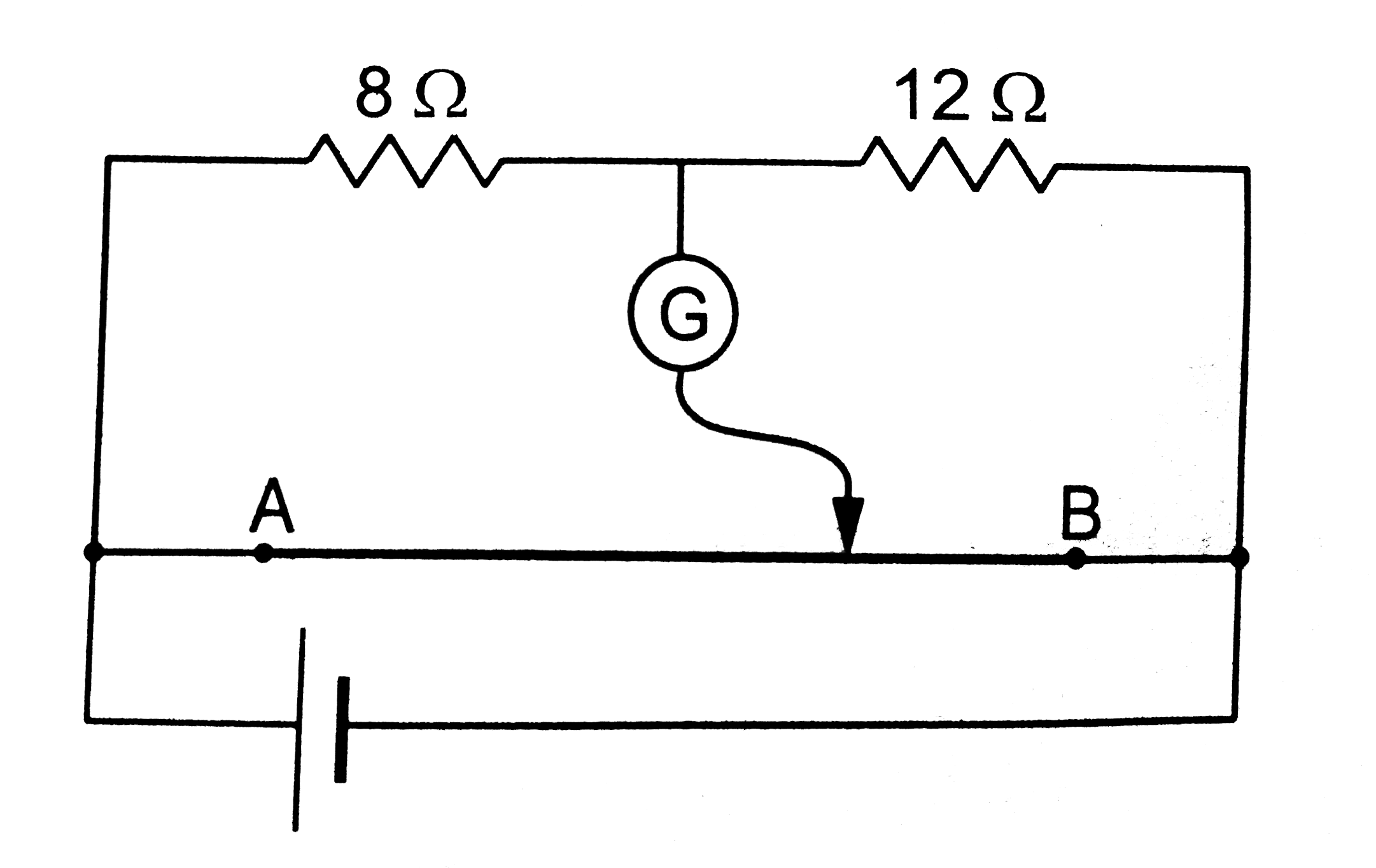 Solution in Gujrati
Solution in Gujrati
If the wire is connected to the
potentiometer wire so that
RADRDB=812
then according to Whitstone's bridge, no
currrent will flow through galvano meter.
RADRDB=LADLDB=812=23
(Acc.to principle of potentio meter)
LDB+LDB=40cm
⇒LB23+LDB=40cm
⇒53LDB=40cm
⇒LDB=40×53
= 24 cm from B.
Topper's Solved these Questions
- BOOK - HC VERMACHAPTER - ELECTRIC CURRENT IN CONDUCTORSEXERCISE - Objective 29videos
ELECTRIC CURRENT IN CONDUCTORS
- BOOK - HC VERMACHAPTER - DISPERSION AND SPECTRAEXERCISE - Exercises11videos
DISPERSION AND SPECTRA
- BOOK - HC VERMACHAPTER - ELECTRIC CURRENT THROUGH GASESEXERCISE - Exercises23videos
ELECTRIC CURRENT THROUGH GASES
Similar Questions
Electrons are emitted by a hot filament and are accelerated by an electric field as shown in figure .The two stops at the left ensure that the electron beam has a uniform cross-section.
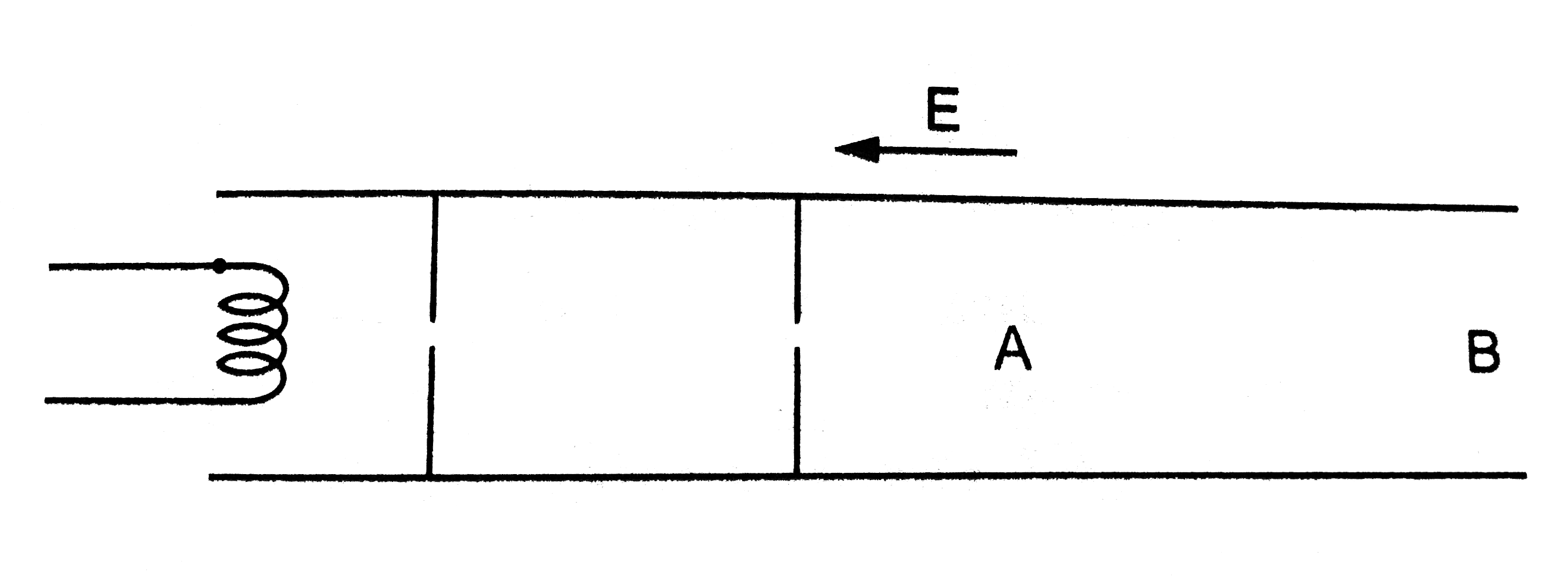 01:32View Solution
01:32View SolutionA flint glass prism and a crown glass prism are to be combined in such a way that the deviation of the mean ray is zero. The refractive index of flint and crown glasses for the mean ray are 1.620 and 1.518 respectively. If the refracting angle of the flint prism is 6.0∘, what would be the refracting angle of the crown prism ?
02:13View SolutionA discharge tube contains helium at a low pressure. A large potential difference is applied across the tube. Consider a helium atom that has just been ionized due to the detachment of an atomic electron. Find the ratio of the distance travelled by the free electron to that by the positive ion in a short time dt after the ionization.
02:36View SolutionThe potentiometer wire AB shown in figure is 40 cm long. Where should the free end of the galvanometer be connected on AB so that the galvanometer may show zero deflection?
 03:03View Solution
03:03View SolutionThe potentiometer wire AB shown in figure is 40 cm long. Where the free end of the galvanometer should be connected on AB so that the galvanometer may show zero deflection?
05:37View SolutionA potentiometer wire AB is 100 cm long and has total resistance of 10Omega . If the galvanometer shows zero deflection at the position C , then find value of unknown resistance
View SolutionThe wire AB of slide wire bridge 68 is 400 cm long. Where should the jockey J whose one end connected to galvanometer,the other end can be connected to AB, so that galvanometer shows no deflection ?
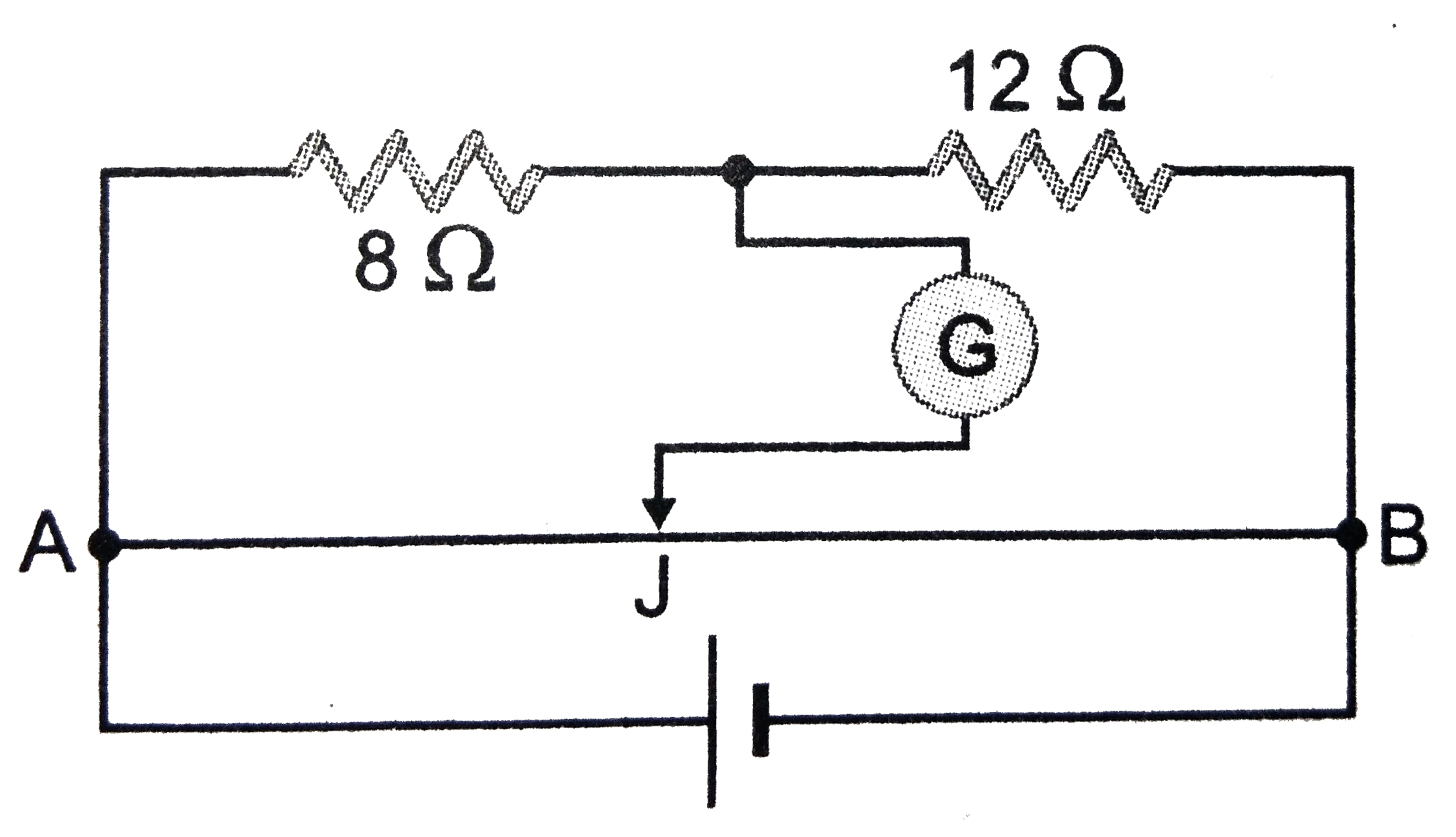 View Solution
View SolutionA potentiometer wire AB as shown in 40 cm long of resistance 50Omega//m free end of an ideal galvanometer is touching the potentiometer wire with the help of a jockey. What should be the velocity of the jockey as a function of time so that potential difference across the galvanometer is varying with time as (2sinpit)V
03:22View Solution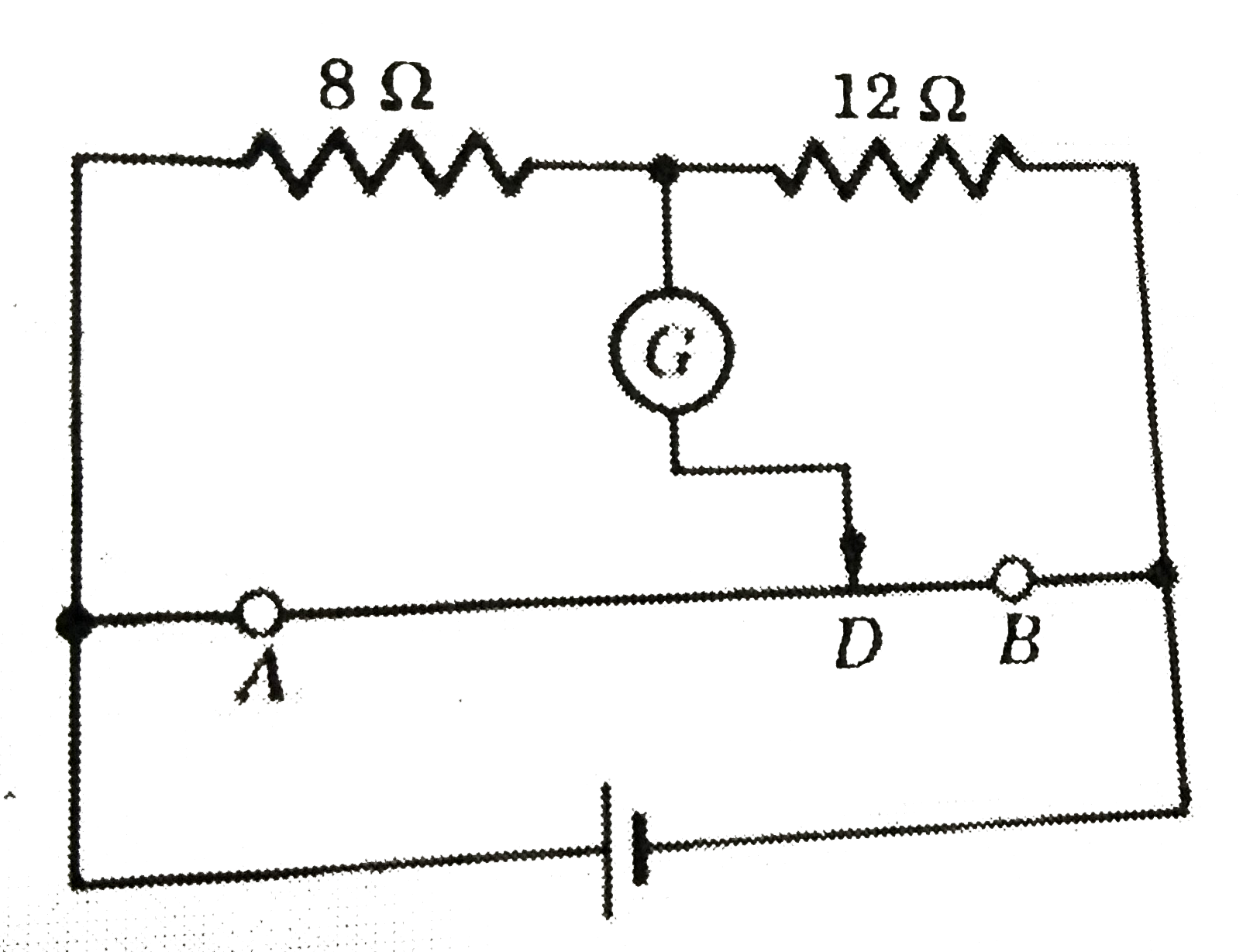
The potentiometer wire AB shown in figure. Is 40 cm long. Where should the free end of the galvanometer be connected on AB so that the galvanometer may show zero deflection?05:33View Solution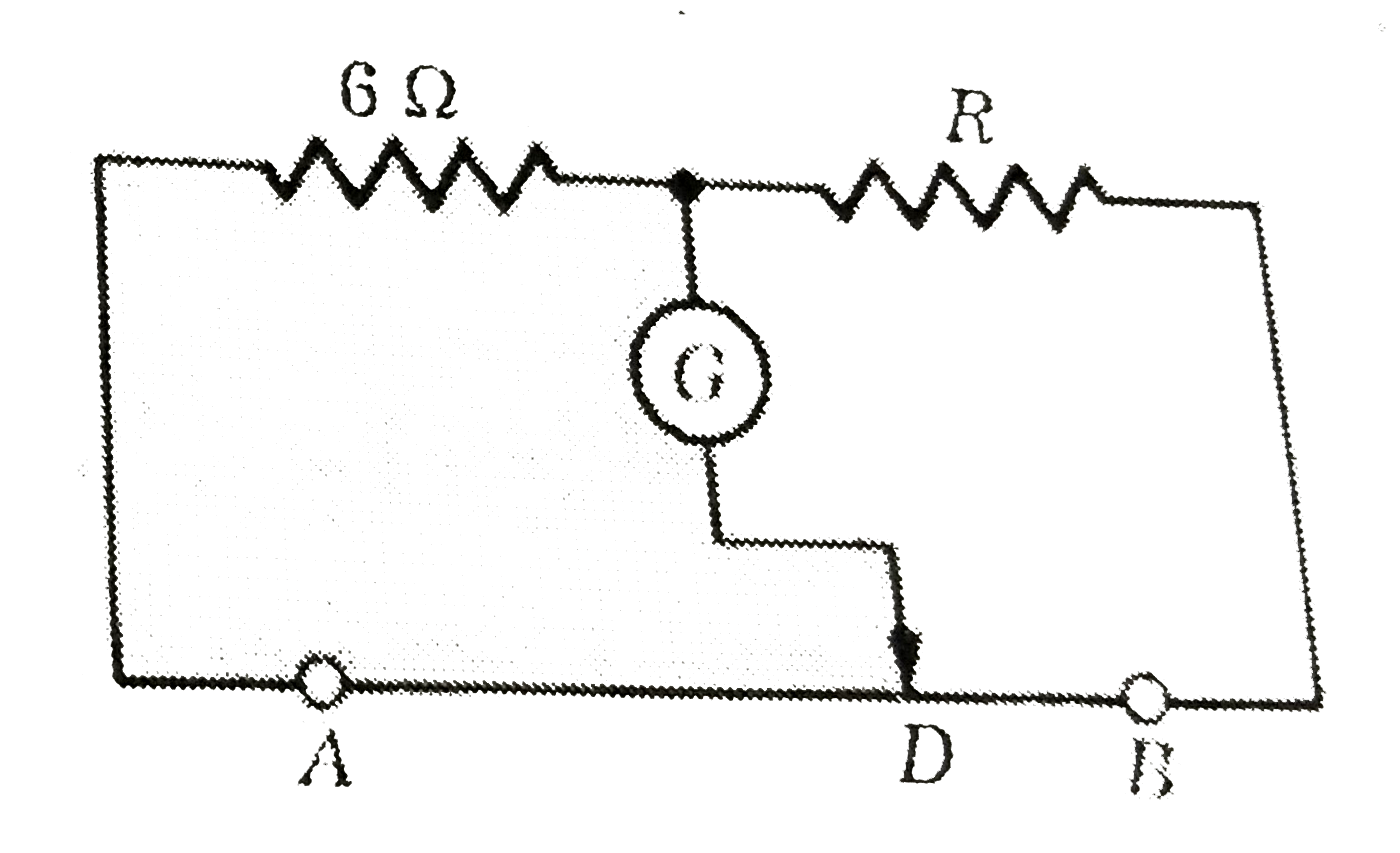
The potentiometer wire AB shown in figure. Is 50 cm long. When AD=30cm, no deflection occurs in the galvanometer. Find R02:31View SolutionThe potentiometer wire AB is 600cm long. At what distance (in cm) from A should the jockey J touch the wire to get zero deflection in the galvanometer?
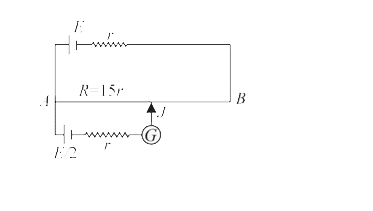 02:47View Solution
02:47View SolutionIn the potentiometer circuit shown in the figure the internal resistance of the 6V battery is 1Ω and length of the wire AB is 100 cm . When AD = 60 cm , the galvanometer shows no deflection . The EMF of the cell C is (the resistance of the wire AB is 2Ω )
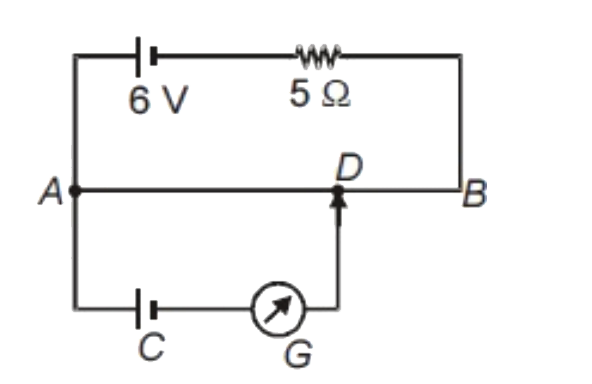 02:02View Solution
02:02View SolutionThe potentiometer wire AB shown in figure is 40 cm long. Where should the free end of the galvanometer be connected on AB so that the galvanometer may show zero deflection?
 04:58View Solution
04:58View SolutionThe potentiometer wire AB shown in figure is 40 cm long. Where the free end of the galvanometer should be connected on AB so that the galvanometer may show zero deflection?
02:37View SolutionIn the circuit, given figure below the length of the wire AB = 400 cm. Where should the jockey J be placed, so that the galvanometer shows a zero deflection?
03:42View SolutionA potentiometer wire AB as shown in 40 cm long of resistance 50Omega//m free end of an ideal galvanometer is touching the potentiometer wire with the help of a jockey. What should be the velocity of the jockey as a function of time so that potential difference across the galvanometer is varying with time as (2sinpit)V
02:38View Solution

